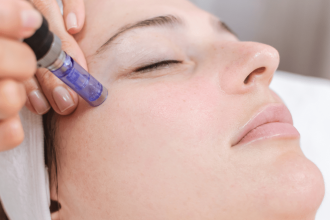The entire CBD industry in Canada is bustling with life. And it’s predicted the industry will get even better for a few years to come. Of course, the more we know about CBD, the more inventions and new development we’re going to see in the future. Today, we have one CBD product that is very reliable and easy to use and will always attract more first-time users in Canada, I am talking about CBD oil.
Unfortunately, with the popularity of CBD oil, we’re now seeing more and more myths about it. These myths could be harmful and misleading to some Canadians and lead to many negative experiences with CBD oil. If you’re planning to use CBD oil for the first time, it’s important for you to recognize these myths and ignore them.
CBD hasn’t been scientifically proven to offer relieve any health conditions
We may still need to do a lot of research to know more about CBD, but we already know that CBD does have some health benefits for the user. Sadly, there is a myth floating around that says there’s little concrete evidence that CBD is beneficial for humans.
Furthermore, according to a study in 2020, CBD has been shown as a promising anti-cancer drug. The result of the study is rather promising, with many signs that say CBD is beneficial for cancer patients. The mechanism of action of CBD and its potential application in cancer therapy could be the keys to a bright future of the CBD industry.
CBD doesn’t work on me
This myth is created because there are many impatient people in Canada. The thing with CBD is that it may take a while before it takes effect, and everyone reacts to CBD differently. This is probably the worst myth that could affect beginners in Canada. Even some authors who tried CBD concluded that CBD doesn’t work because they don’t feel the effects after a week.
If you’re planning to take CBD for whatever purpose for the first time, you must be patient. Keep taking CBD regularly for at least a week because you can reach a conclusion. Even then, if you still don’t feel the effects after using CBD for a week, you can’t say that it doesn’t work. CBD in your system needs time to build up, and you need to determine the purposes of taking CBD before you start. If you don’t know why you take CBD in the first place, then how can you say if it works or not?
In 2018, the U.S. Food and Drug Administration approved Epidiolex, which is an oral solution for the treatment of seizures associated with severe forms of epilepsy, Lennox-Gastaut syndrome, and Dravet syndrome. The medicine is CBD-based and has been proven to be effective. This is a huge development in the CBD industry and only one example among many other benefits of CBD.
If you want to know more about this, you can always consult with your physician first. Tell them about the reason why you want to take CBD oil. Your physician could give you some advice, including how to take CBD oil, the dosage, and whether it’s a good idea or not.
CBD can make you high
Some people just can’t separate CBD from THC. But these two compounds are very much different from each other. THC is the compound that can make you high. In contrast, CBD doesn’t have any psychoactive properties, so you won’t get high from consuming it. This is why some people prefer CBD oils that don’t have any THC in them.
Furthermore, CBD is just one compound among over 100 compounds that are found in hemp plants. On its own, CBD won’t make you high. In fact, CBD is the most famous compound when it comes to health benefits for Canadians.
CBD oils are all the same
This myth is also harmful and misleading, especially for first-time users. When you’re browsing for CBD oil, there are some key factors that you need to know to determine which product is the best. In other words, CBD products CBD oils aren’t all the same. Some products are just better than others.
Besides the quality, there are also various types of CBD oils, a great selection can be found here. For example, there are three common types that you need to know: full-spectrum, broad-spectrum, and CBD isolate. Full-spectrum CBD oil contains all the compounds of the hemp plant, including THC. Broad-spectrum is similar but without the THC. While CBD isolate only contains CBD and nothing else. As you see, these types of CBD oils are vastly different from each other.
Conclusion
Some myths about CBD oils are straight-up harmful, while others could make your experience with CBD be negative. There are also more myths out there, some are old, and some are new, but these are the most common and impactful ones. Always remember to do your research before you believe what people say about CBD oils.















